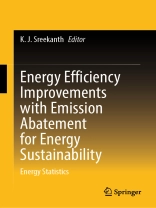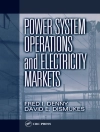The book titled “Energy Efficiency Improvements with Emission Abatement for Energy Sustainability” targets primarily academicians and policy-makers who are involved and practiced in the energy and environment field. It is useful for students, scholars, who wish to obtain an inclusive impression, and those with advanced knowledge can obtain a deeper knowledge of specific issues related with energy statistics, emission reduction and sustainability. Policy-makers in international organizations, national & local governments, companies & trade associations, and NGOs can use it as a source of inspiration for future policymaking as well as for a better understanding about the consumer behavior while dealing with energy. The book obviously targets those interested in energy and associated aspects, its setbacks, though there may be close parallels with social and behavioral issues. While its scope is international, this book may also be relevant to readers concerned with domestic areas of precise country and continental interest, as these are increasingly uncovered to developmental issues in energy. The book addresses the following major aspects:
• The energy statistics assessment for energy sustainability with an emission abatement approach.
• The relationship between energy statistics and major greenhouse gas emissions, explained in the energy efficiency context.
• The relevant policy directions in the energy statistics direction.
• The impact of climate change, and its effect on various sectors/countries and the role of energy statistics on them.
Those who are interested in the interpretation of statistical data on energy resources and pollution, latest innovations in energy markets, energy technology and services, carbon mitigation, can make this book useful.
قائمة المحتويات
Introduction to energy statistics a country perspective.- Energy aggregators indicators Sdgs energy economy analysis energy related transactions having major environmental significance.- Importance of energy balance in energy statistics and energy policies.- Framework used for energy accounting use of energy balances to develop energy policies building of energy balances flexibility supply transformation demand issues and how the energy statistics is analysed for each criteria.- Energy efficiency and emission abatement relations.- Energy demand and energy efficiency relationship energy consumption-emission abatement relations, policy directions for a better emission abatement for sectors and countries.- Emission abatement a Cop27 outlook for countries.- Details of global assessment reports and its importance on emission mitigation, impact of research on climate change programs by un for mitigation process of transition to decarbonization global relations.- Energy statistics influence on energy consumption for oil rich countries.- Energy mix dependence of economic growth and energy consumption, comparison of energy intensity in oil rich countries and effects on energy consumption, technological factors.- Drivers of human behaviour to meet un Sdgs in relation with Energy.- Behaviour change on a global scale cognitive biases associated sdgs behavioural change and policy formulations for energy country level innovations.- Energy efficient policies to achieve sdgs for countries.- Policies for reliable, sustainable energy, population and its effect related to Sdg1 and 7 investment options energy saving targets effect of incentives subsidies and taxes on energy efficiency and its impact on sdgs technology innovations.
عن المؤلف
Dr. K. J. Sreekanth is a Research Scientist working under the Energy Efficiency Technologies (EET) Program of the Energy and Building Research Center (EBRC) at Kuwait Institute for Scientific Research (KISR). He has more than 24 years of research and academic experience. His general areas of research include Energy management, Environmental impact assessment, Energy planning, Carbon dioxide emission reduction, Clean development mechanism, Alternative energy resources, Economics of climate change, Technological change & environmental policy, Sustainable energy demand planning, and Optimization techniques.












